ERP Solutions and Benefits in the Electronics Manufacturing Sector
VerifiedAdded on 2022/08/30
|5
|1097
|23
Report
AI Summary
This report delves into the application of Enterprise Resource Planning (ERP) systems within the electronics industry, with a specific focus on Oracle-based solutions. The analysis begins by introducing ERP and its functions, highlighting its role in automating back-office processes, including project management, supply chain management, and financial management. The report then examines the electronics manufacturing industry, emphasizing its unique challenges such as competition, supply chain complexity, and regulatory compliance. The core of the report outlines the benefits of ERP in this sector, including automation of processes, improved product quality tracking, enhanced supply chain management, promotion of lean management principles, and improved traceability. A case study of LG Electronics is presented, illustrating how ERP implementation helped address challenges like inefficient decision-making and lack of transparency. The case study highlights the positive outcomes, such as improved employee engagement and informed decision-making. The report concludes by emphasizing the importance of careful selection and successful implementation of ERP systems for companies in the electronics sector, reinforcing that ERP solutions are essential for meeting business needs.
1 out of 5
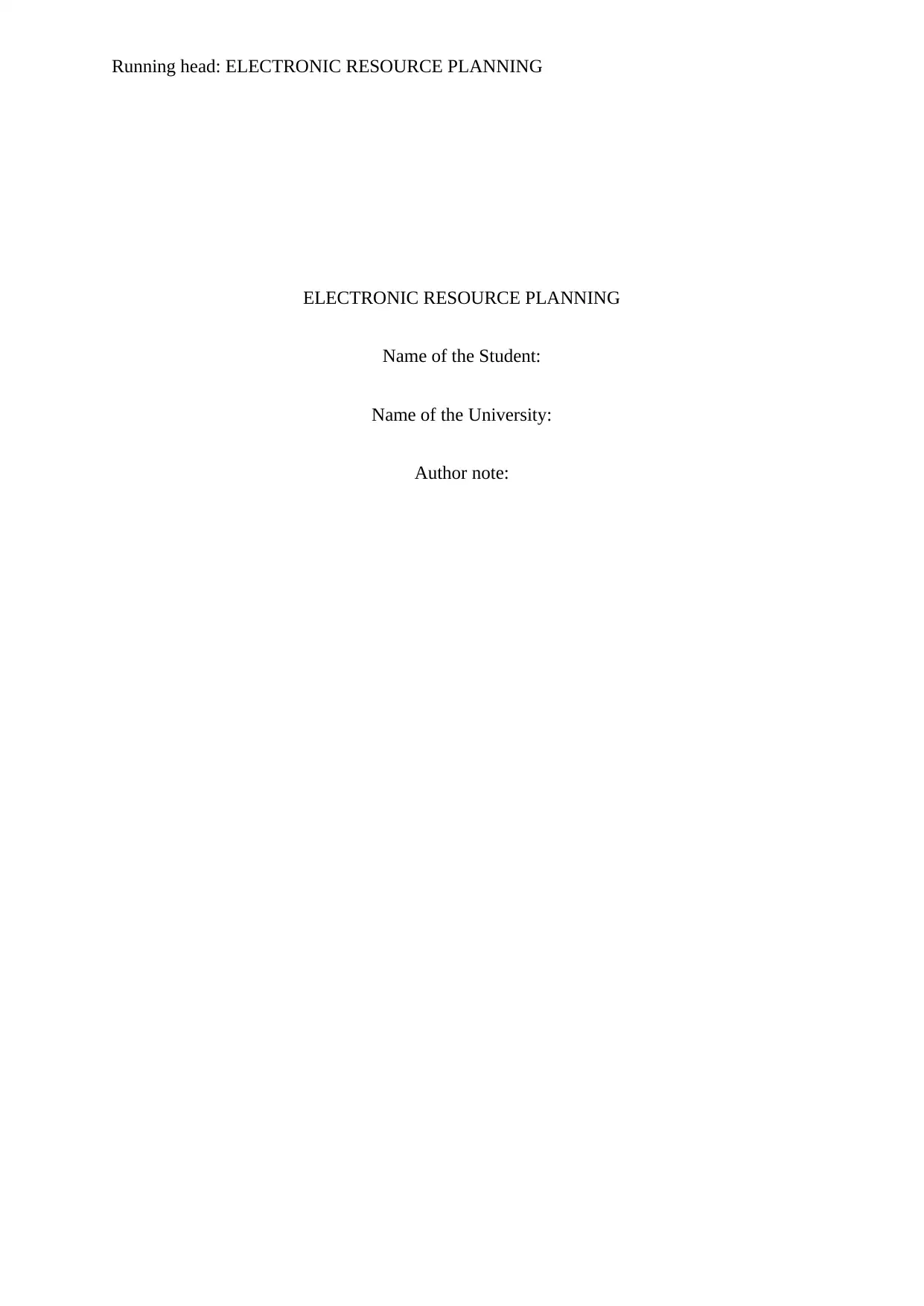
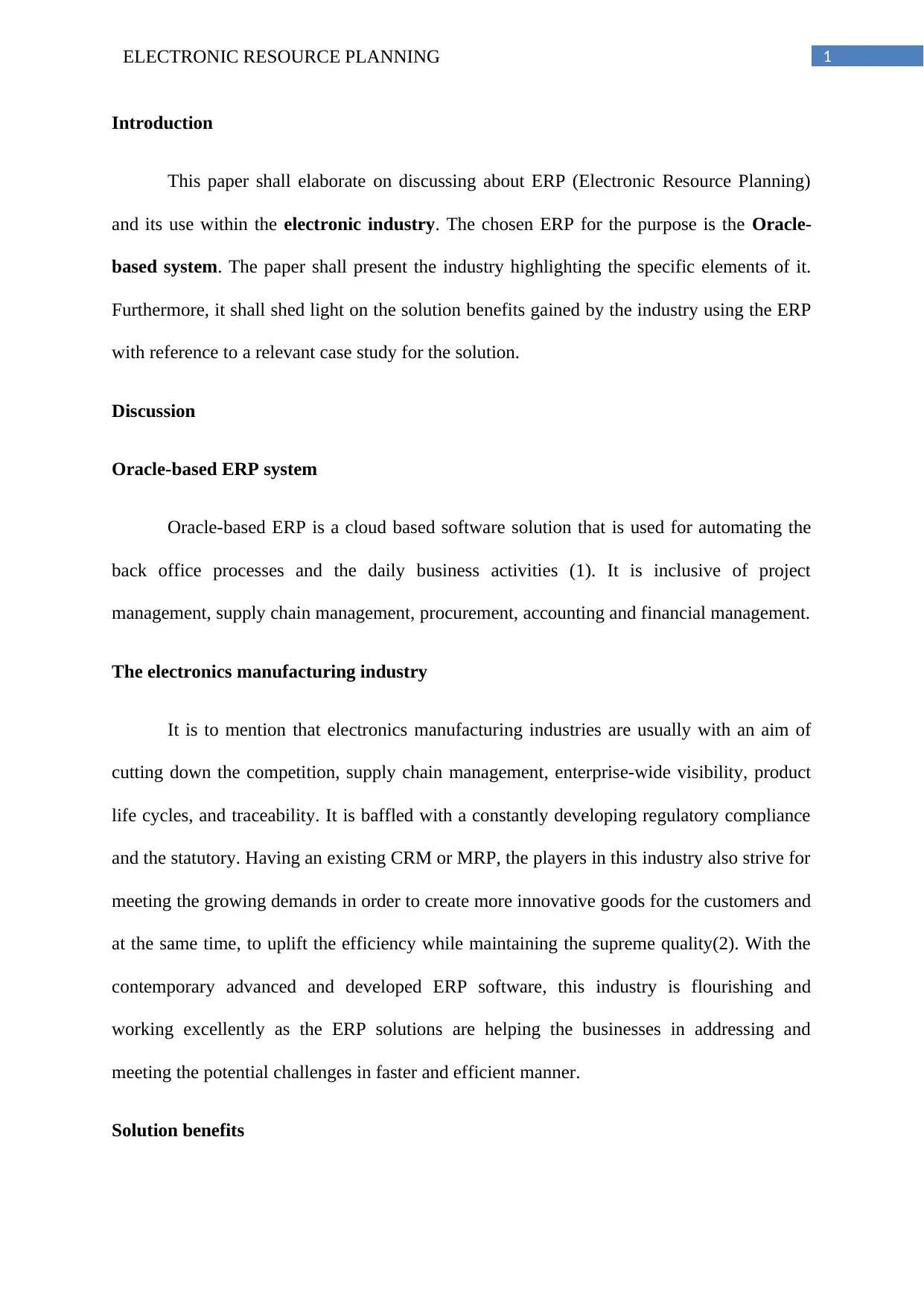
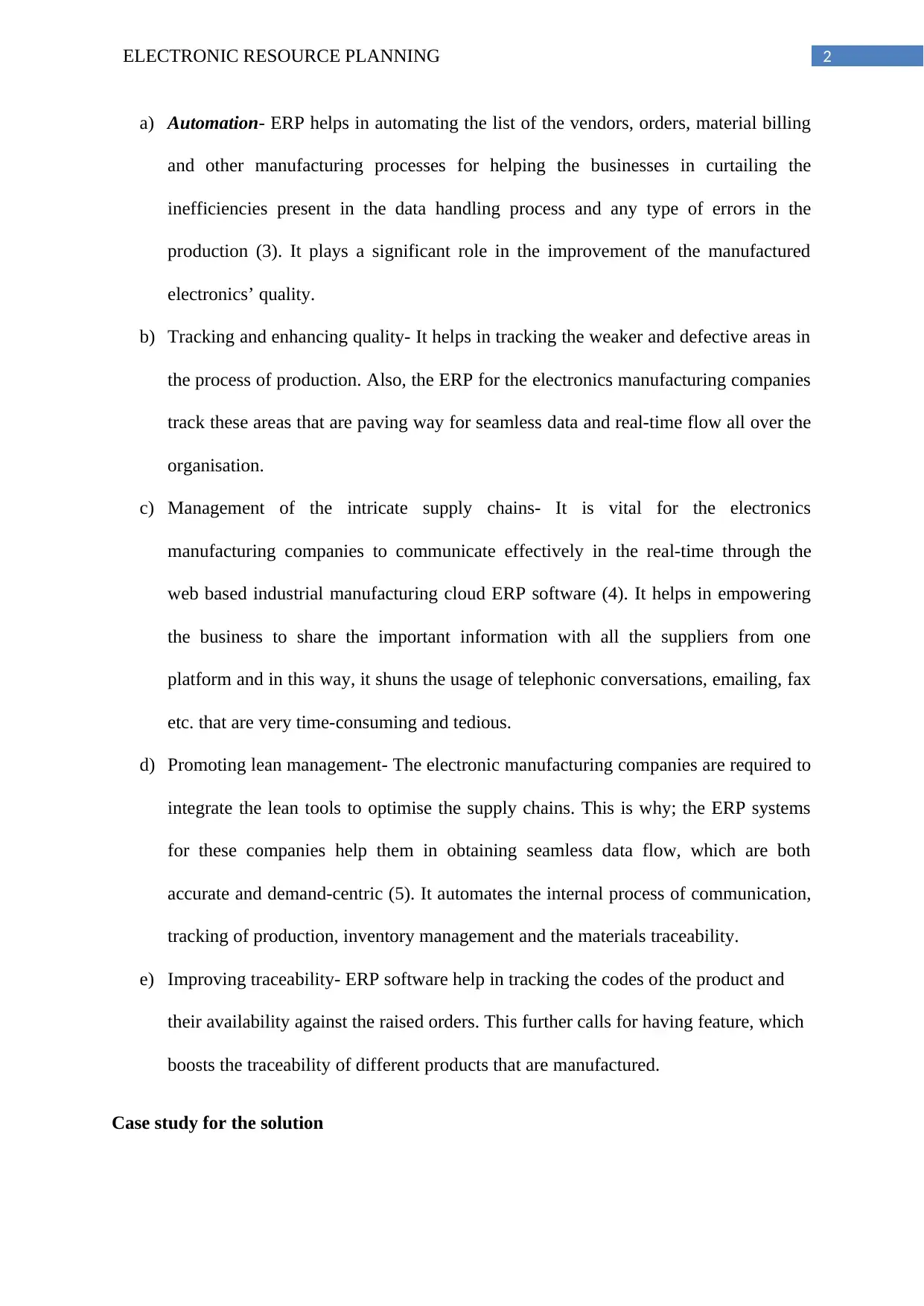

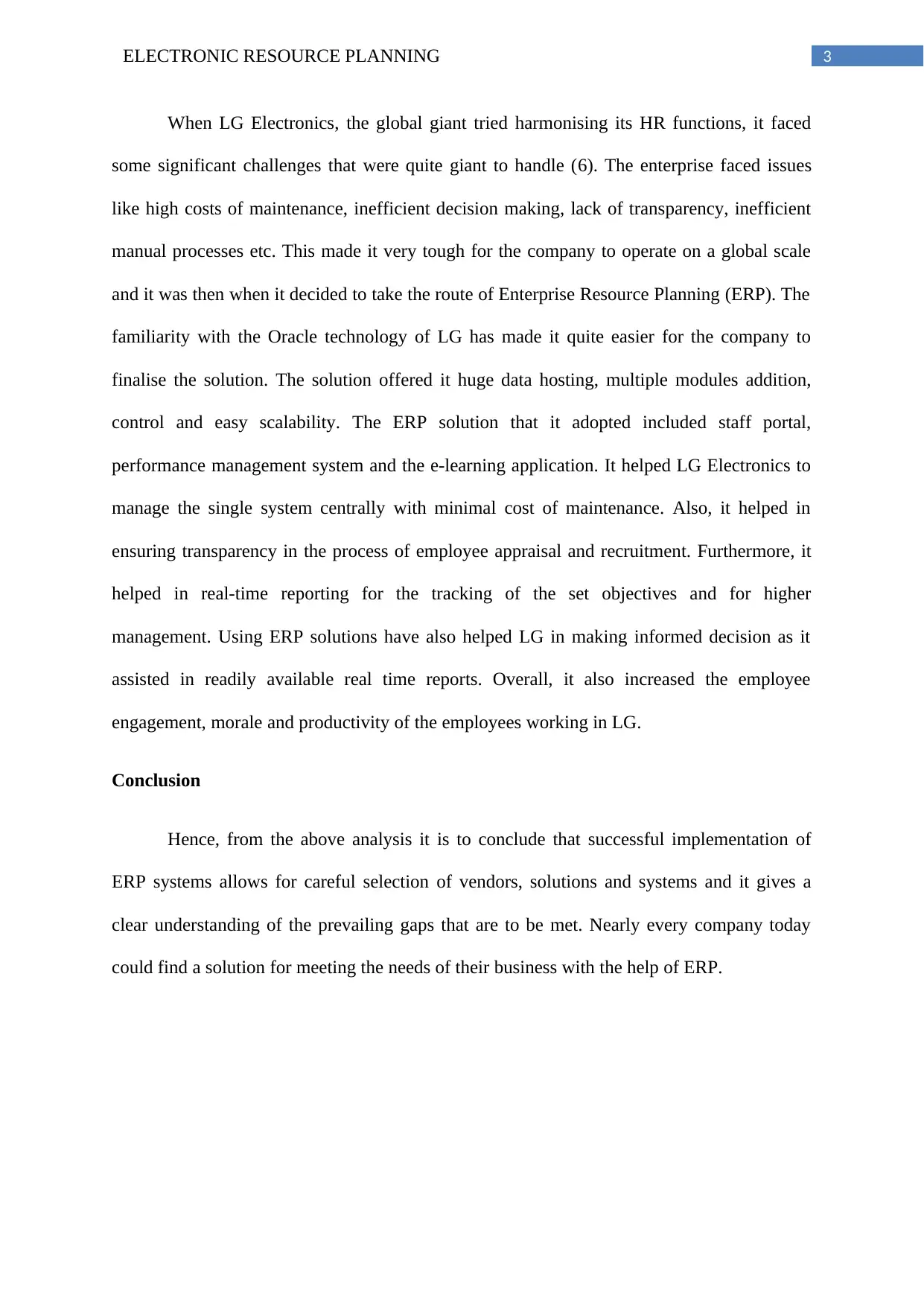
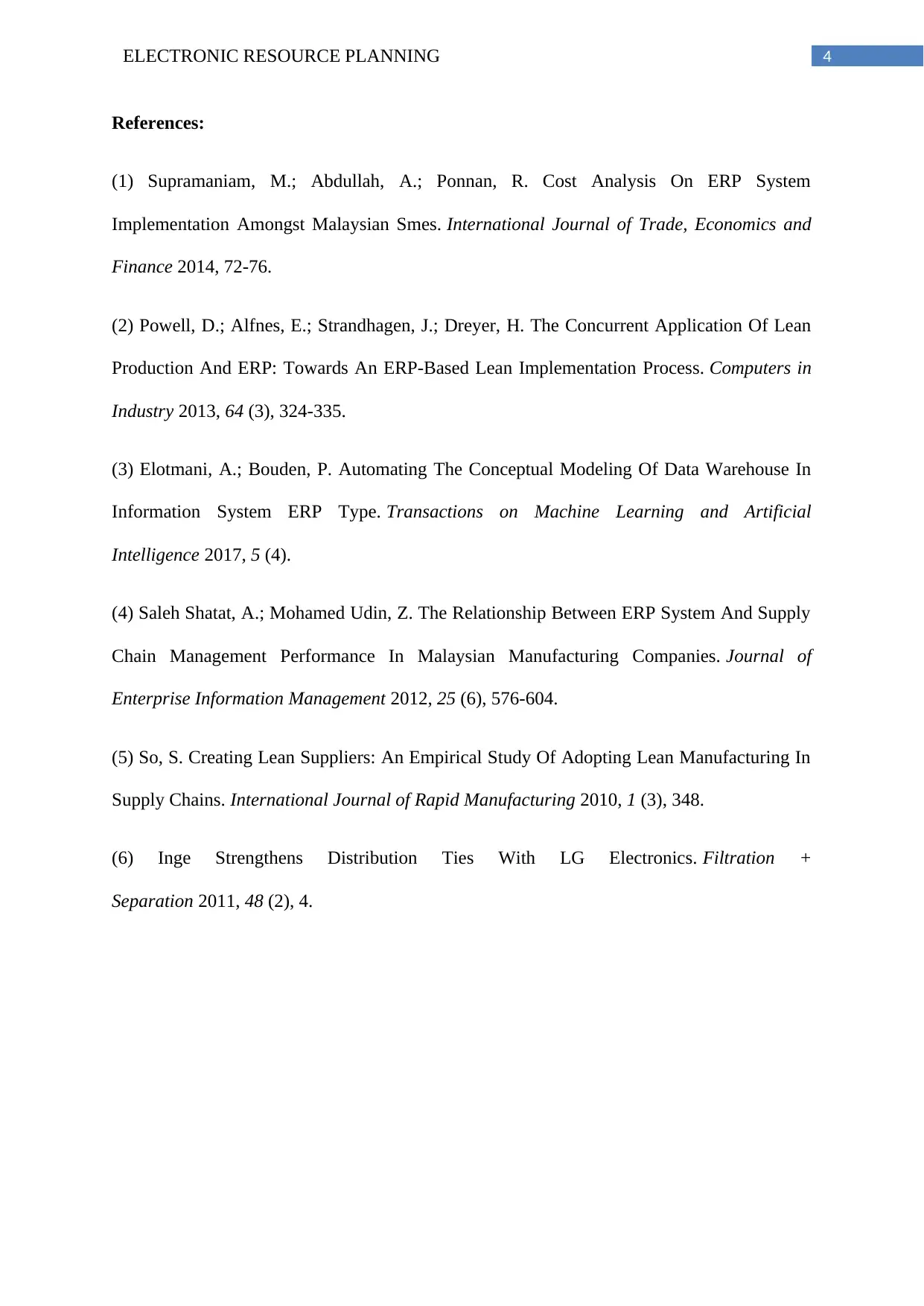






![[object Object]](/_next/static/media/star-bottom.7253800d.svg)